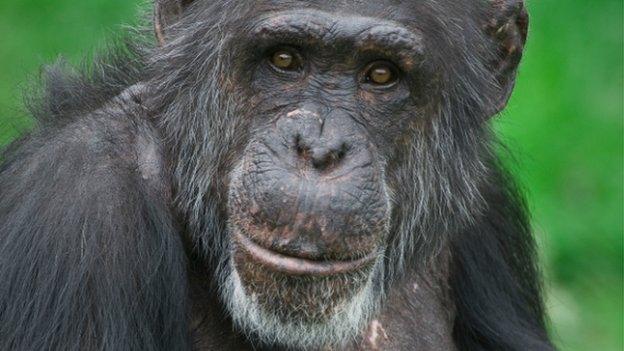Monkey leaders and followers have 'specialised brains'
- Published
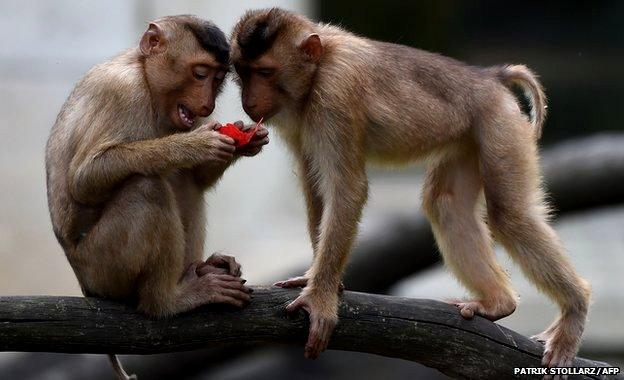
Macaque monkeys live in groups which have firm social hierarchies
Monkeys at the top and bottom of the social pecking order have physically different brains, research has found.
A particular network of brain areas was bigger in dominant animals, while other regions were bigger in subordinates.
The study suggests that primate brains, including ours, can be specialised for life at either end of the hierarchy.
The differences might reflect inherited tendencies toward leading or following, or the brain adapting to an animal's role in life - or a little of both.
Neuroscientists made the discovery, which appears in the journal Plos Biology, external, by comparing brain scans from 25 macaque monkeys that were already "on file" as part of ongoing research at the University of Oxford.
"We were also looking at learning and memory and decision-making, and the changes that are going on in your brain when you're doing those things," explained Dr MaryAnn Noonan, the study's first author.
The decision to look at the animals' social status produced an unexpectedly clear result, Dr Noonan said.
"It was surprising. All our monkeys were of different ages and different genders - but with fMRI (functional magnetic resonance imaging) you can control for all of that. And we were consistently seeing these same networks coming out."
The monkeys live in groups of up to five, so the team identified their social status by watching their behaviour, then compared it to different aspects of the brain data.
In monkeys at the top of their social group, three particular bits of the brain tended to be larger (specifically the amygdala, the hypothalamus and the raphe nucleus). In subordinate monkeys, the tendency was for a different cluster of regions to be bigger (all within the striatum).
Nature plus nurture
At either end of the social ladder, compared to monkeys in the middle, the activity in all these different brain regions was more synchronised. The researchers believe these areas together constitute brain circuits that are crucial for negotiating social situations - interpreting social and emotional cues, learning the value of certain actions, and so on.
Dr Noonan said it was particularly interesting to see different brain regions expanded at the top and the bottom of the social ladder, indicating that dominance isn't simply about being physically stronger and having an altogether bigger brain.
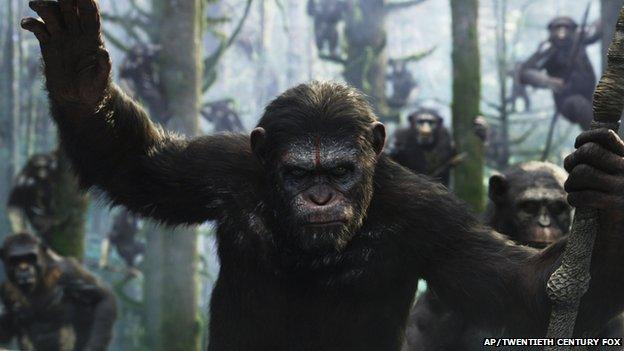
It is likely that apes, fictional and otherwise, would show similar correlations - and humans too
"It suggests that at either end [of the hierarchy], you really need a specific set of skills to be successful, and those skills are making higher neural demands on those areas of the brain," she told the BBC.
"In the animal kingdom, you might think that being dominant is all about aggression - I'm the bigger monkey, bugger off the rest of you.
"But all of this put together means that dominance might actually depend not only on aggression and physical strength, but also on forming bonds and making coalitions - and being quite smart about placing your loyalties."
The results cannot distinguish whether the differences in these monkeys' brains were there from birth, predisposing them to a particular social lot in life, or whether they reflect ongoing changes in the brain's organisation based on the demands of living with a particular status. Dr Noonan thinks that a combination of both these effects is the most likely explanation.
"It probably is both, because they're both really important mechanisms to have on board. You can imagine if you've come from 'good stock' within the monkey world, and your dad was really strong and muscly, you'll inherit those genes, and that might set your brain up in a certain way.
"But of course you're going to have to be plastic, in order to succeed and survive. You'll have to be adapting your behaviour and therefore your brain has got to adapt too."
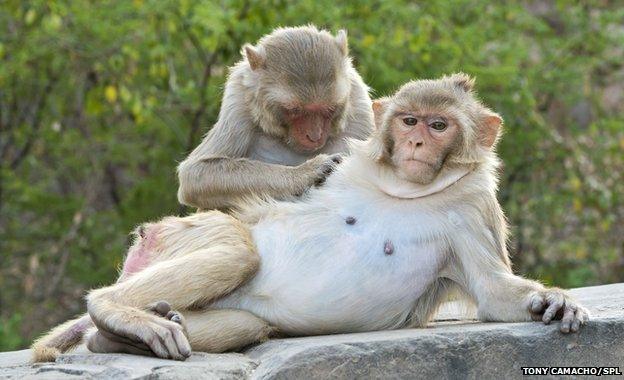
Differences between dominant and subordinate monkeys could be adaptive or inherited, or a mixture of both
There is no reason to suspect that the correlations identified in the study would not apply to other primates, like apes and humans.
"The regions that we've found are all there in humans and they all do similar things," Dr Noonan said.
But in our society, social position can vary considerably in different situations - so it is might be difficult to define "dominance" for a human study.
"While we might be top-dog in one circle of friends, at work we might be more of a social climber. The fluidity of our social position and how our brains adapt our behaviour to succeed in each context is the next exciting direction for this area of research."
Follow Jonathan on Twitter, external.
- Published4 April 2013
.jpg)
- Published2 August 2014
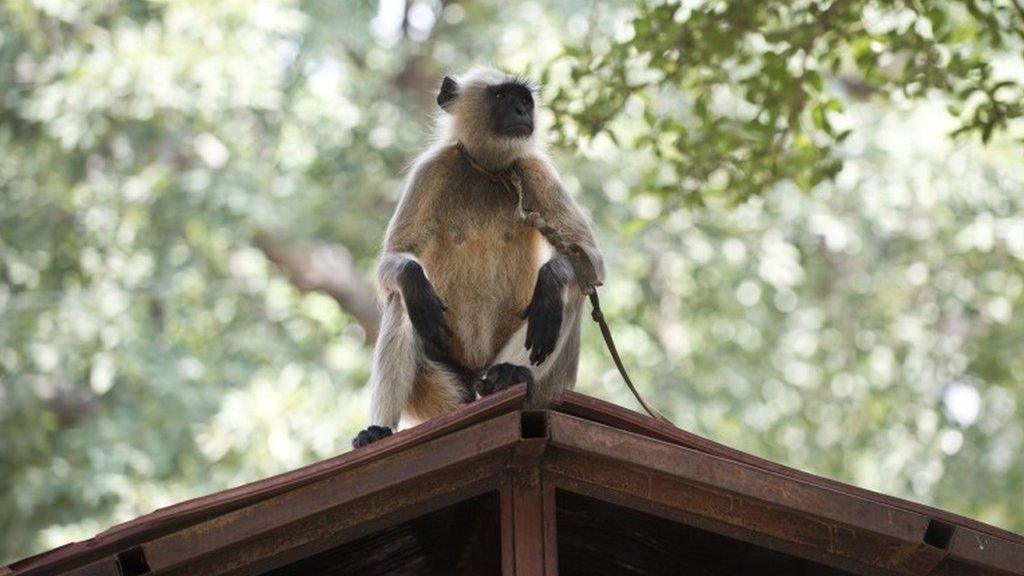
- Published10 November 2011
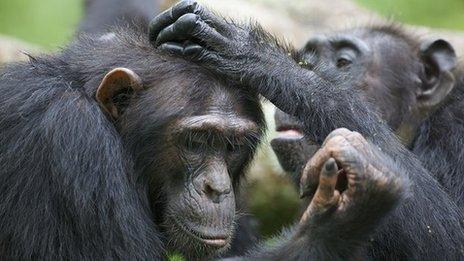
- Published21 October 2012
